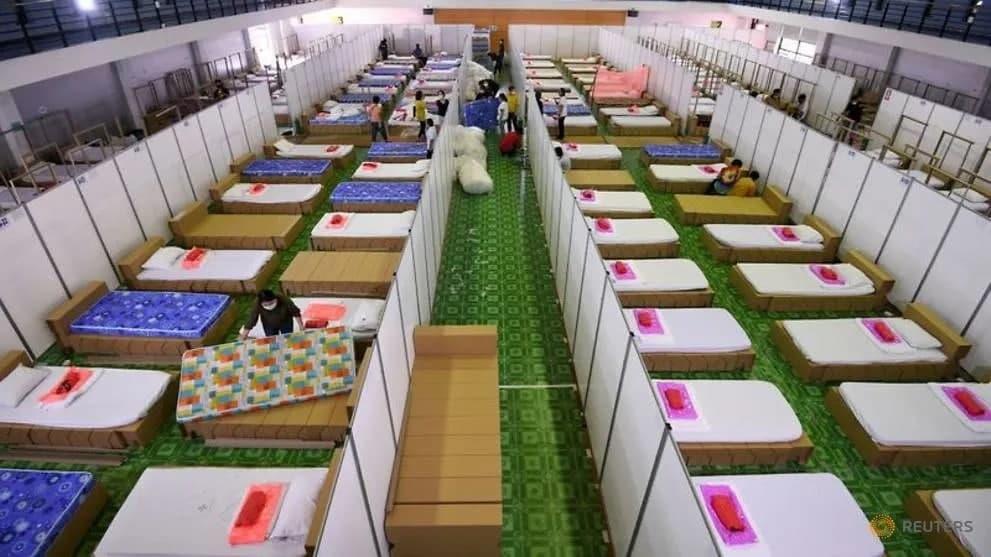BANGKOK, April 30 (CNA) - A shortage of hospital beds in Thailand has put a strain on its public health system as a new wave of COVID-19 infected more than 34,000 patients this month.
On Thursday (Apr 29), the Centre for COVID-19 Situation Administration (CCSA) reported 1,871 new cases and 10 more deaths. Although the daily case number went below 2,000 for the first time in six days, hospitals are increasingly filled with patients with severe conditions.
Data from the Public Health Ministry showed a gradual increase in patients with intubation needs and those who suffer pneumonitis or inflammation of lung tissues, which could lead to respiratory failure and death. The number of such patients exceeded 1,000 on Thursday.
The continued increase of infections has led to the opening of several field hospitals and hotel hospitals nationwide, where more than 10,000 beds remain available.
However, these facilities can only accommodate asymptomatic patients and those with mild symptoms. For those with moderate symptoms or severe conditions, they need to be treated at regular hospitals.
According to the Department of Medical Services, there are 44,560 hospital beds across Thailand. As of Apr 27, 22,865 beds were available.
But more than half of these were located at field hospitals and hotel hospitals, while a large number of beds in regular hospitals were taken.
“Airborne infection isolation rooms (AIIR) are most equipped for patients with severe conditions who require intubation. Modified AIIRs, which are secondary, can also accommodate those with severe conditions. These two types of rooms are already 70 per cent to 80 per cent (occupied),” deputy director of the Medical Services Department Nattapong Wongwiwat said at a press conference on Tuesday.
“So, frankly speaking, we have come to a tight situation where we don’t have much space left for new patients unless it is well managed. We can’t admit 100 per cent of the patients and this is why we need to manage it by reserving the beds.”
According to Nattapong, it is important to gradually remove patients from airborne infection isolation rooms and intensive care units once they have recovered in order to make space for those in need. At the same time, he noted, Thailand also needs more such rooms in both private and public hospitals.
“Airborne infection isolation rooms are still available in private hospitals but for any patient to be admitted there, it depends on the doctor’s diagnosis,” Nattapong said.
“Patients who exhibit many symptoms will be taken in first. As for patients whose symptoms show they can wait, the system will gradually handle them. The same applies to private hospitals,” he added.


